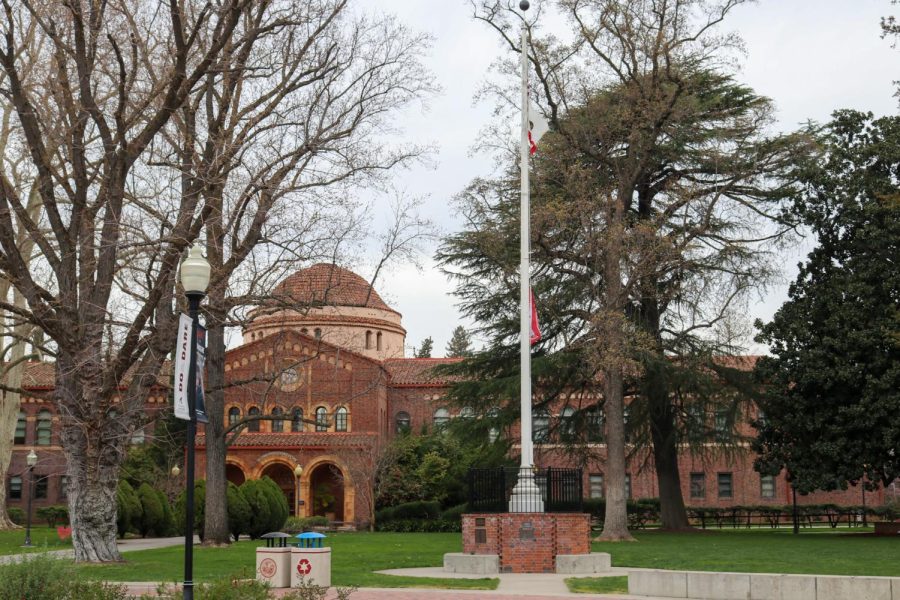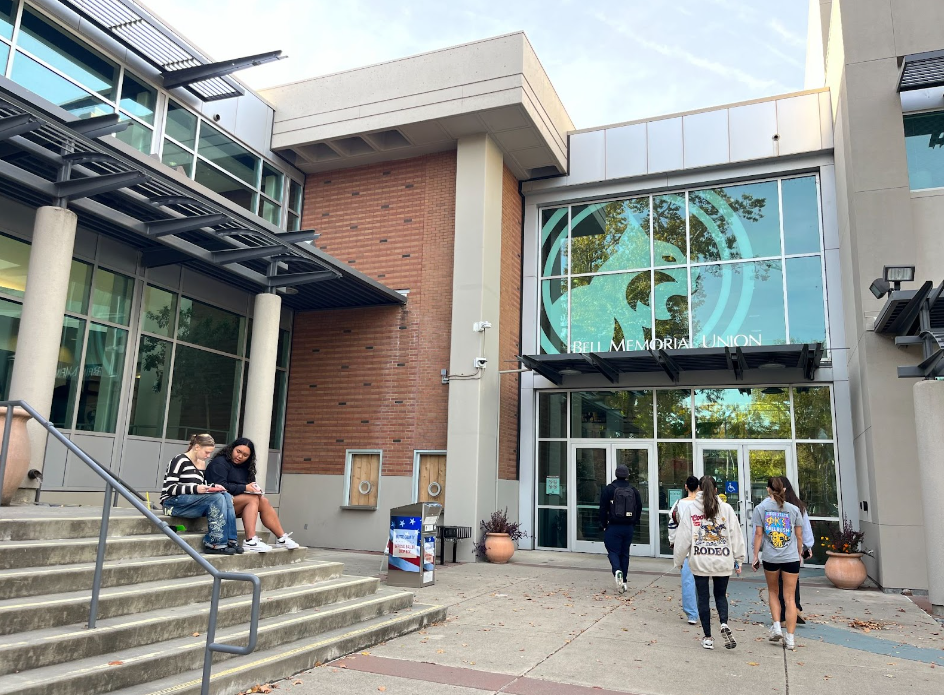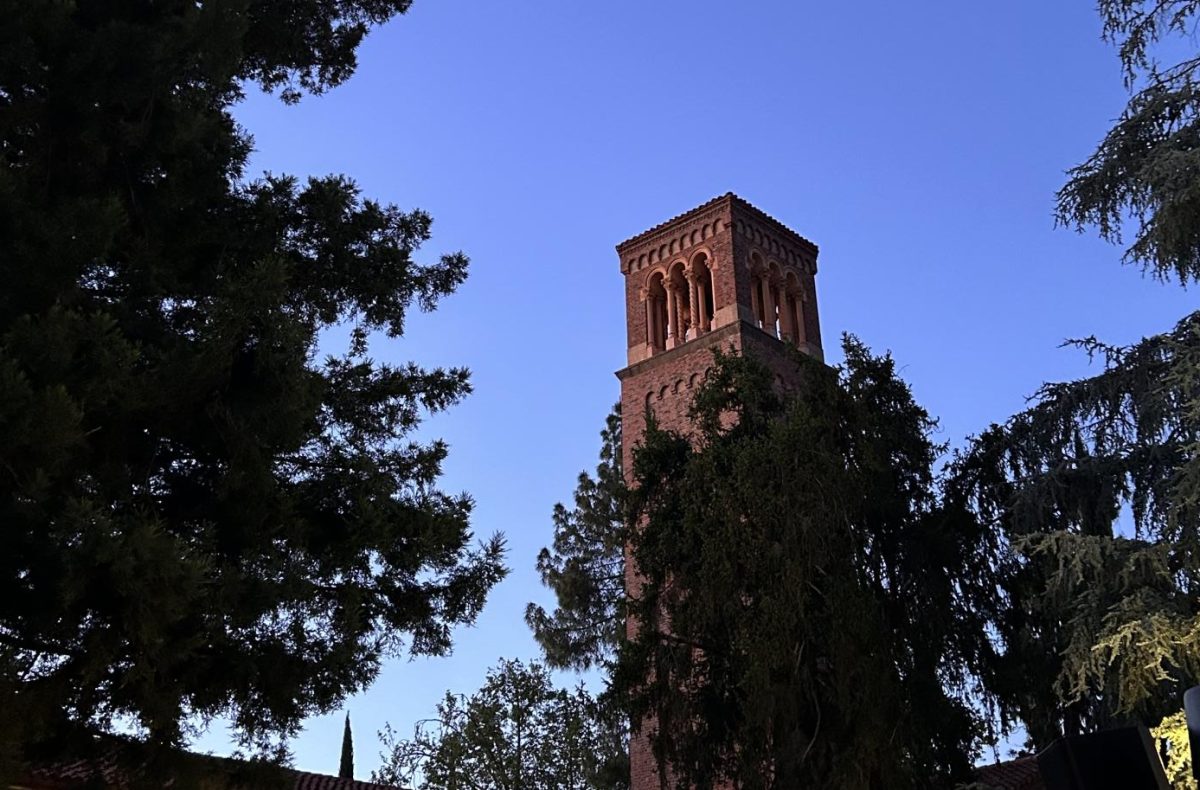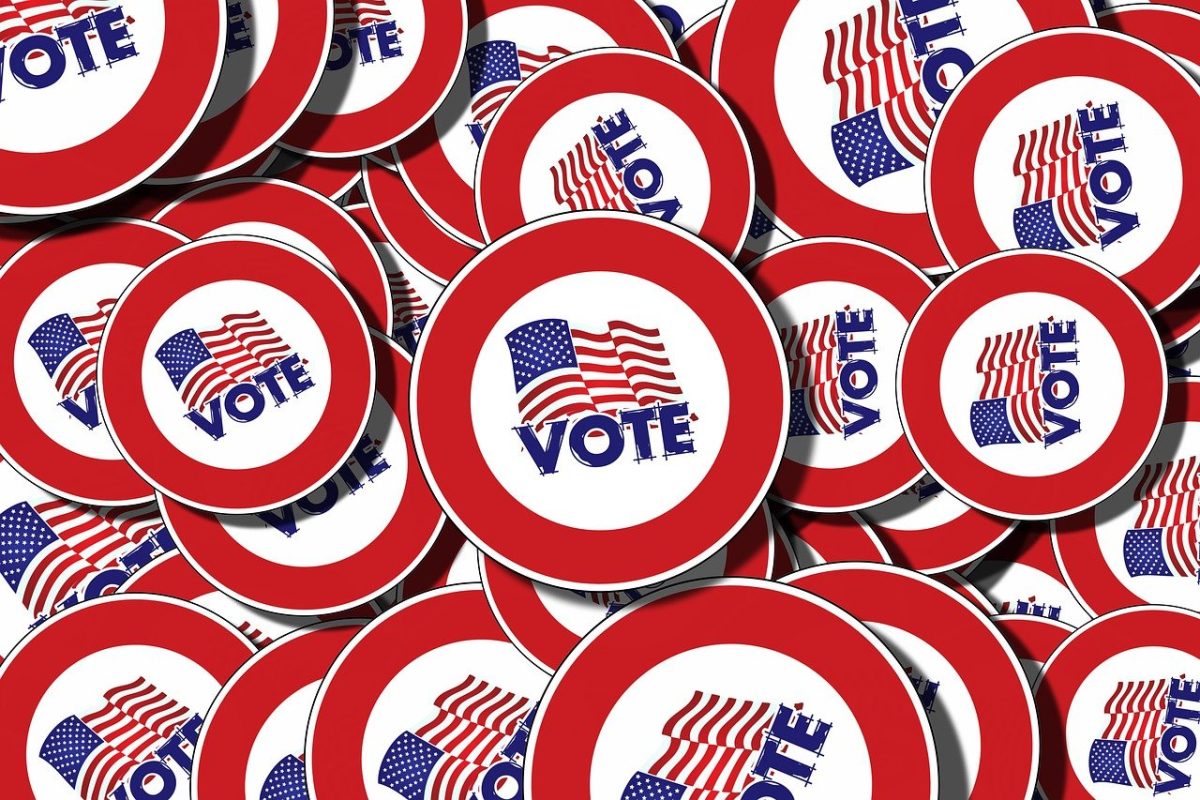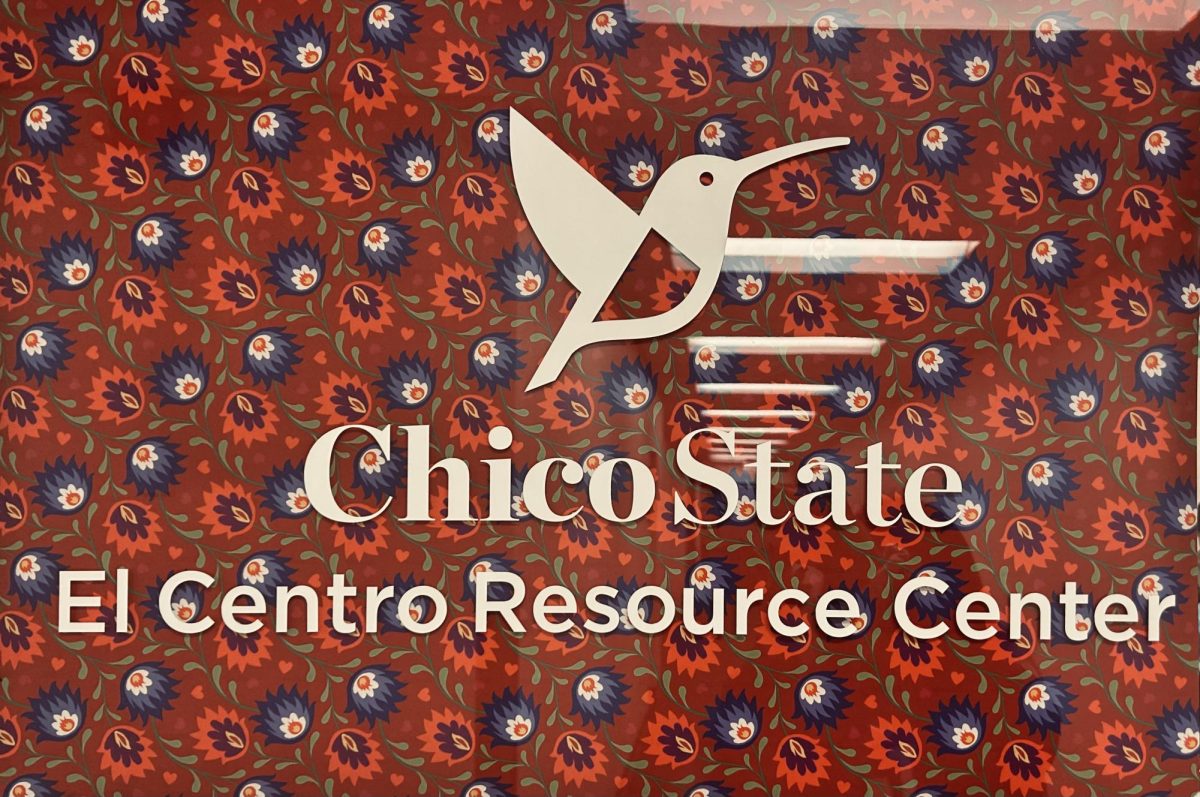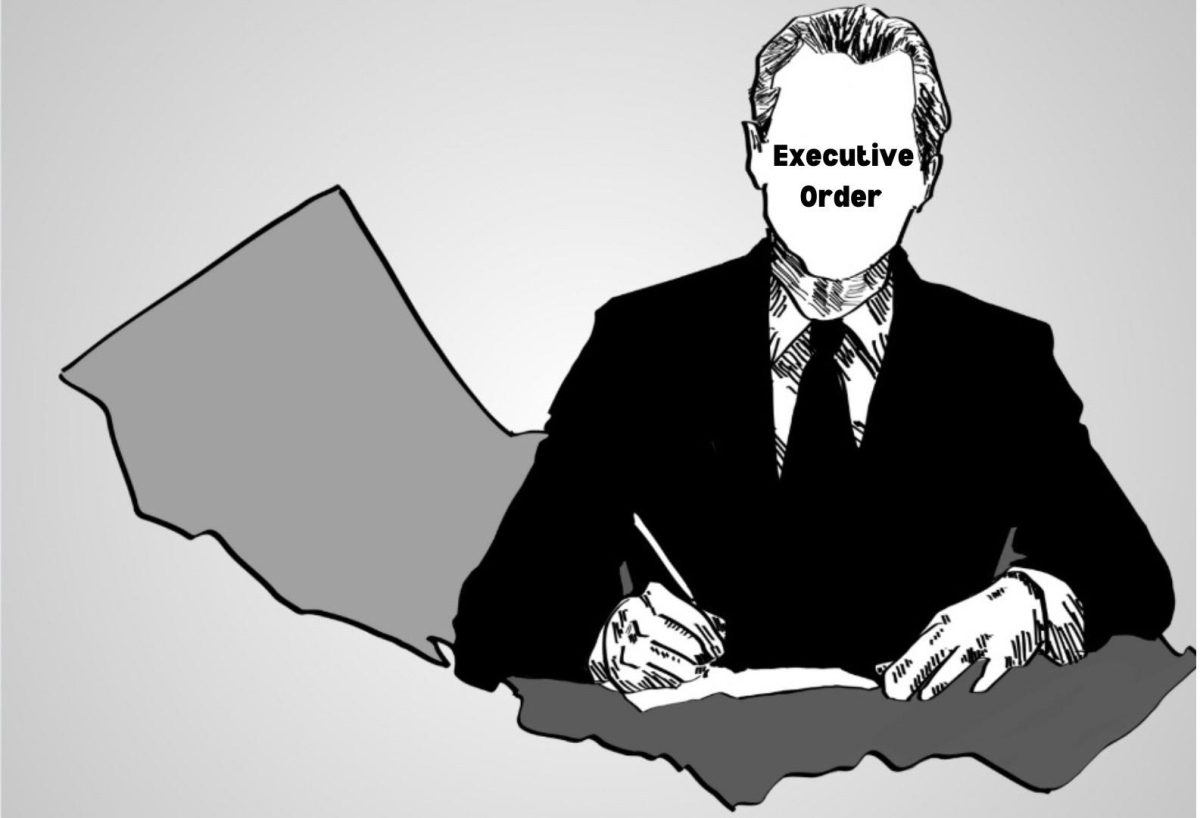Since the change in composting at Chico State, students have been mobilized to talk trash across campus. But it’s not the trash talk that first comes to mind, they’re literally talking about trash.
The so-called “trash talkers,” or waste advisers, are student interns hired by the AS Sustainability Committee. Their job is to stand near trash cans on campus and tell students what’s compostable and what’s not.
The goal of the program is to make sure all waste gets into the correct container, whether it be trash, compost or recycling.
“That’s where the trash talkers come in,” said Courtney Silver, second-year graduate biology major on the AS Sustainability Committee. “They are here to educate students about the composting changes and aid them in the understanding of why items go in particular bins.”
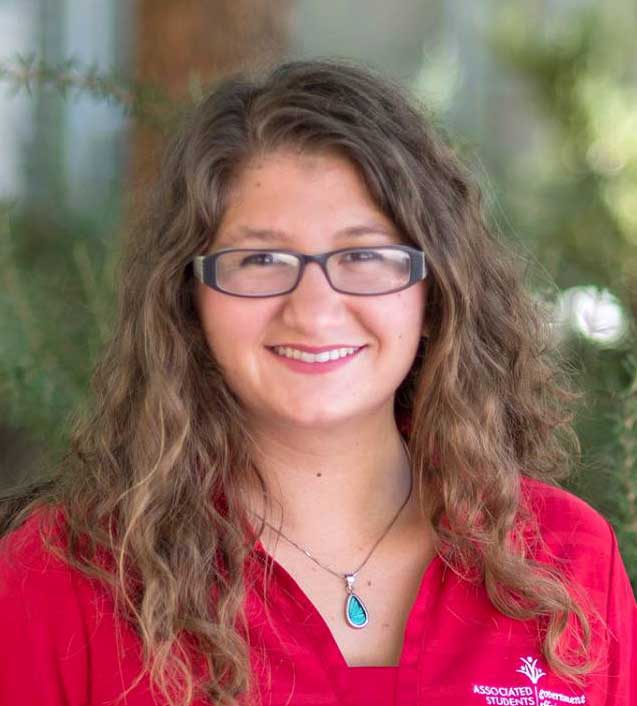
Before the recent change, compostable food containers such as paper plates, cups and stir sticks could be thrown in the compost along with food scraps.
“That is no longer the case,” Silver said. “Unfortunately, now we can only compost food scraps.”
Students now need to scrape their food scraps into the compost and throw any containers in the trash or recycle bin, she added.
Some students were upset by the cutback in composting, but most have adapted, according to Silver.
“Many students are upset at the change, I am upset as well,” she said. ” At this moment we have no other choice and we should try our damned hardest to make sure that we are all trying to get as much composted as possible.”
The student “trash talkers” will only be stationed at trash cans across campus a few weeks every semester, but signs instructing students to place food into the compost bin will stay up.
The student interns will be out the rest of this semester and the first few weeks of next semester, according to Silver. They will be there as long as needed, meaning that if students throw waste into the correct bin, then their job is done.
Composting efforts were cut back when the contamination level got too high at the composting plant in Marysville, said Jake Jacobs, commissioner of sustainability affairs.
Contamination in the compost is when the percentage of biodegradable containers gets too high compared to things that biodegrade faster, such as food, Jacobs added.
“The level of paper towels, plates and all that ratio-wise to food is too high,” Jacobs said. “They deem that as contamination, so Marysville can’t accept it. That’s where the problem is falling. Their end product wasn’t viable. It just wasn’t good compost.”
For example, a stick of celery will biodegrade much faster than a paper plate. Over time, biodegradable containers piled up because they break down slower.
In response, Recology, which transports compost to the plant in Marysville, mandated that they only send in food scraps.
According to Jamie Clyde, executive director of the Associated Students, she noticed some bags of compost were going to landfill because the contamination levels were too high.
The mandate to only compost food scraps came soon after, and signs were put up to inform students of the change.
She added that the trash talkers are there to make sure compost doesn’t end up in landfill. Recology allows a small amount of contamination, meaning that if there’s a few paper towels, it’s fine. But if too much ends up mixed in with the compost, then it’ll go to the dump.
“We have to make sure that we’re producing a product that is the least contaminated as possible,” Clyde said.
She added that while the cutback is temporary, they don’t know how long it will last. It depends on whether the composting plants are able to increase capacity to accept biodegradable containers.
“There’s going to be a lot of pressure that’s put on the industry,” Clyde said. “That’s going to put pressure on the industry to make a change but that has to happen, it can’t be just us. It has to be all of Chico, all of Butte County, but it’s just not there yet.”
Austin Herbaugh can be reached at [email protected] or @aherbaugh14 on Twitter.




